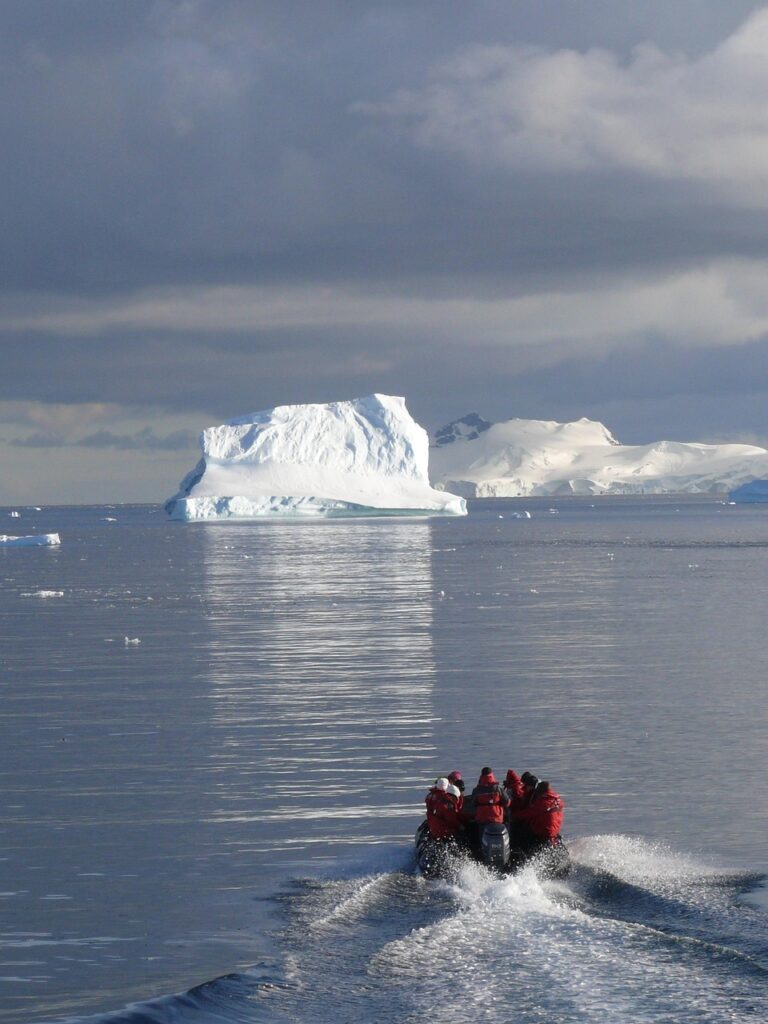- Travel
- Antarctica travel
- By Manohar Patil
Antarctica: Earth's Icy Frontier
Antarctica, often referred to as the “home at the end of the Earth,” is a continent of unparalleled beauty, extreme conditions, and profound scientific importance. Located at the southernmost point of our planet, this vast expanse of ice and snow captivates the imagination, offering a glimpse into a world untouched by human settlement. For those seeking the ultimate adventure, Antarctica travel promises an experience unlike any other, a journey to a pristine wilderness that will forever change your perspective.
The White Continent's Unique Ecosystem
Beyond its mesmerizing landscapes, Antarctica is a vibrant hub of unique biodiversity. Despite the frigid temperatures and harsh environment, a remarkable array of life thrives here. The nutrient-rich Southern Ocean, surrounding the continent, supports an astonishing abundance of krill, which forms the base of a complex food web. This krill sustains enormous populations of penguins, including Adélie, Chinstrap, Gentoo, and Emperor penguins, all iconic residents of the White Continent. Seals, such as Weddell, Crabeater, and Leopard seals, lounge on ice floes, while majestic whales, including humpbacks, orcas, and minke whales, patrol the icy waters. Observing these creatures in their natural habitat is a highlight for any visitor on an Antarctica travel expedition.
A Land of Scientific Discovery
Antarctica is not just a tourist destination; it’s a vital natural laboratory for scientists worldwide. Its untouched ice sheets hold invaluable clues about Earth’s past climate, locked away in ancient ice cores. Researchers study glaciology, meteorology, oceanography, and astrobiology, among many other fields. The extreme conditions also provide unique opportunities to study how life adapts to harsh environments, offering insights that could be crucial for understanding life on other planets. Numerous research stations, representing various nations, operate throughout the year, conducting groundbreaking studies that contribute to our understanding of global climate change and Earth’s intricate systems.
Planning Your Antarctic Expedition
Embarking on Antarctica travel requires careful planning and a spirit of adventure. Most expeditions depart from Ushuaia, Argentina, or Punta Arenas, Chile, crossing the legendary Drake Passage. While the crossing can be notoriously rough, the reward of reaching Antarctica’s serene shores is immeasurable. Tour operators offer a variety of itineraries, from shorter trips focusing on the Antarctic Peninsula to longer voyages that explore more remote areas. Activities often include zodiac cruises among icebergs, shore landings to observe wildlife, kayaking, and even camping on the ice. Responsible tourism is paramount, with strict guidelines in place to protect the fragile environment and its inhabitants. Choosing an accredited and environmentally conscious operator is essential for a sustainable and respectful Antarctica travel experience.
Preserving Antarctica's Pristine Beauty
The unparalleled beauty and scientific significance of Antarctica come with a profound responsibility: its preservation. The Antarctic Treaty System, an international agreement, designates the continent as a scientific preserve, prohibiting military activity and promoting international cooperation. Visitors and operators alike play a crucial role in upholding these principles, minimizing their environmental impact, and respecting wildlife. By adhering to guidelines and promoting responsible tourism, we can ensure that Antarctica remains a pristine wilderness, a home at the end of the Earth, for generations to come.
Share this Article
WhatsApp
LinkedIn
Telegram
Email
Get Daily Updates to Your Inbox
Subscribe to News Letter
Advertisement


